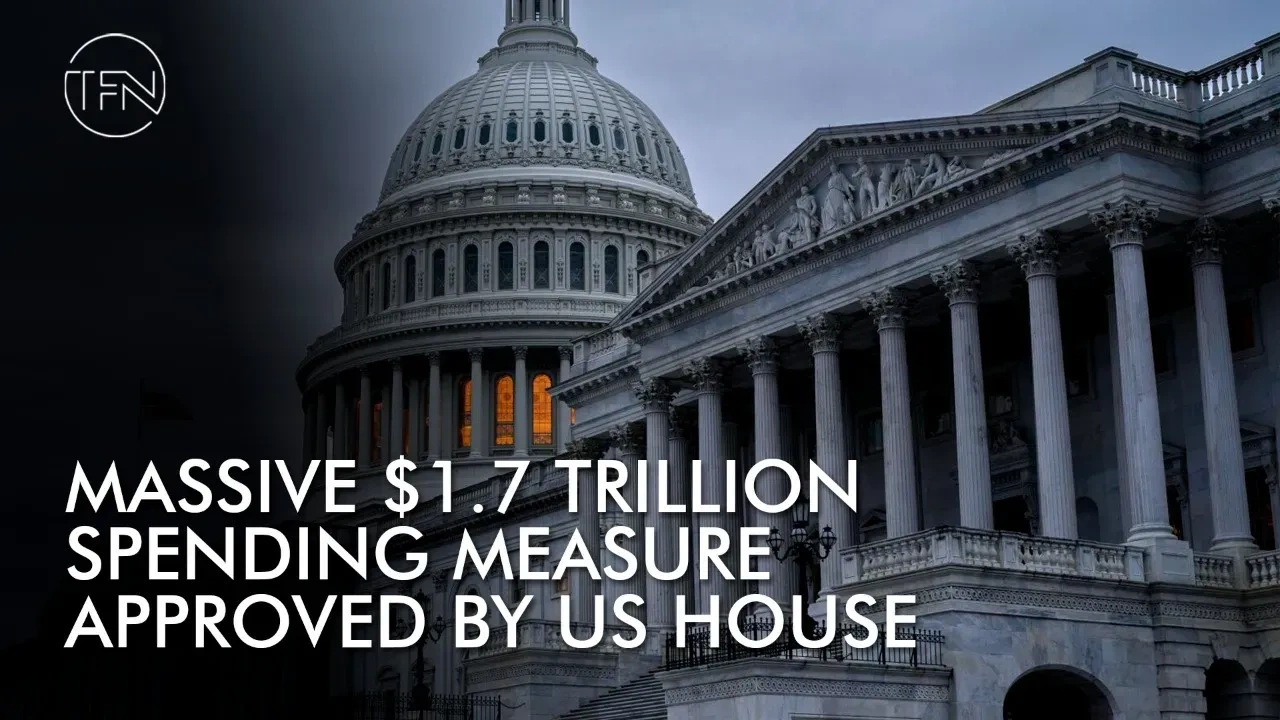
A $1.7 trillion funding measure was approved by the US House of Representatives on Friday, preventing a partial government shutdown that was set to begin at midnight in Washington DC (05:00 GMT on Saturday).
Despite a Republican-led move to adjourn, the funding package was approved 225 to 201 on a party-line vote. It now goes to Democratic President Joe Biden's desk as one of the last significant actions of the Democratic-led Congress.
The proposal was already adopted on Thursday by the US Senate. The bill's passing through both chambers of Congress helps prevent a shutdown that would have forced the closure of non-essential services and led to the furlough of federal employees.
US President Joe Biden said in a statement on Friday that the bipartisan financing package "advances major goals for our nation and closes off a year of unprecedented bipartisan success for the American people." He added that he will sign the bill into law "as soon as it reaches my desk."
The package includes $45 billion in extra military, economic, and humanitarian aid for Ukraine and NATO partners, a 10% boost in military expenditure (raising the US military budget to $858 billion), as well as $772.5 for different domestic programs.
The 4,155-page funding package received criticism from Republican House members on Friday; California's Kevin McCarthy, the minority leader, called it a "monstrosity."
Following a 2022 midterm election that tilted the majority in favor of the Republicans, McCarthy is expected to become the House speaker when the party takes control of the chamber the following year.
He will take Nancy Pelosi's position as speaker, who recently declared her intention to stand down as the head of the Democratic Party in the House.
Pelosi responded to McCarthy's remarks on Friday, saying, "It was heartbreaking to hear the minority leader suggest that this legislation is the most disgusting thing to be seen on the House floor in this Congress." I'm left to wonder, "Did he forget January 6th?"
Before taking over the next year, House Republicans had wanted to postpone a vote on the funding package. Before the vote on Friday, several party members complained that the measure would raise the national debt and exacerbate inflation.
Republicans in Congress are also upset that another round of aid to Ukraine, which is still fighting the Russian invasion, will cost $45 billion.
Although there is broad bipartisan support for US backing for Ukraine, McCarthy said that the Republican majority will no longer write a "blank check" for Ukraine in the future.
Mike Garcia, a different California Republican, criticized his fellow House members for not physically being there for the vote that day as they had been for a visit by Ukrainian President Volodymyr Zelenskyy earlier in the week.
"It's chilly that this week we had more members of Congress go to hear a foreign president speak than to cast a vote on our country's yearly operating budget. We must improve,” he remarked.
Zelenskyy expressed confidence that US backing will continue during his visit to the US.
A 10% increase in military expenditure, which brought it to a record-breaking $858 billion from $740 billion last year, attracted less attention. Additionally, spending on domestic programs increased by nearly 6%.
$40 billion more was allocated for disaster relief programs to help communities around the nation recover from drought, floods, wildfires, and other calamities.
Before the next Congress convenes in January, the funding package is anticipated to be the final significant piece of legislation to be completed. Republicans are expected to take control of the House, but Democrats will continue to have a narrow majority in the Senate.
Hopes that the Biden administration would be able to advance the most ambitious elements of immigration reform and gun control are likely to be dashed in light of the divided Congress.
However, the party has been successful in passing sizable laws that fund infrastructure, the US technological industry, and efforts to address climate change.

